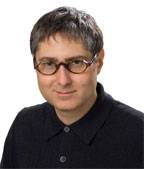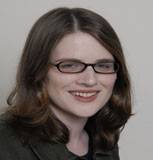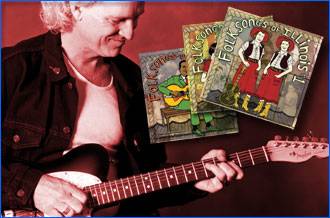You live near a major university and a community college. There are smart people that come here every week to talk to the general public about interesting topics. Perhaps you were not aware of this fact, or were overwhelmed by the sheer number of opportunities for possible enlightenment. If that’s the case, Smile Politely understands and is here to help. Here are several events going on in town this week. Check out one or more of them if you have time. Get your learn on, as they say, and join the cognoscenti. It’s free, you know. Plus, sometimes there’s free food, too!
If you have a community event, speaker, or film event that you’d like to see featured on Listen Up!, send the event information to joelgillespie [at] smilepolitely [dot] com by Friday the week prior to the event. Listen Up! runs on Mondays.
 WHAT: The 2010 Einhorn Lecture by Jeffrey Shandler: “Absolut Tchotchke“
WHAT: The 2010 Einhorn Lecture by Jeffrey Shandler: “Absolut Tchotchke“
WHEN: Monday, Feb. 1 @ 7 p.m.
WHERE: Levis Faculty Center
Not sure if this lecture is normally given by a unicorn or sponsored by a unicorn, but this time around it’s given by a Jewish Studies professor from Rutgers about Yiddish language usage.

WHAT: “Catalytic Conversion of Biorenewable Molecules to Fuels and Chemicals“, Professor Robert Davis, University of Virginia
WHEN: Tuesday, Feb. 2 @ 2 p.m.
WHERE: 116 Roger Adams Laboratory
Finding proper catalysts is crucial for converting many raw materials to biofuels, because effective catalysis, the process either takes too long or requires too much heat to be economically viable. Dr. Davis should be able to shed some light on the state of things.
WHAT: Sustainability Corporate Dialogue Day
WHEN: Thursday, Feb. 4 @ 9 a.m.; ends at 12:30 p.m.
WHERE: Alice Campbell Alumni Center
From the event announcement: “The Corporate Dialogue Day is an annual event on our campus for which we invite some of our corporate partners. This year, with a focus on sustainability, corporate partners in attendance will include Abbott, Ameren, BP, Caterpillar, ExxonMobil, GE, John Deere, Motorola, and Monsanto.
“The morning will be structured as three one-hour panels. During each panel, we will ask two or three of our corporate participants to talk about how they are addressing energy, water, and work force development issues from the perspectives of efficiency and profitability, global citizenship, and customers and consumer preference.”

WHAT: Lecture Series: “Nuestra Voz: Enabling Collaboration among Sustainable Development NGOs in Costa Rica Using Social Networking Technology,” Michelle Shumate, UIUC
WHEN: Thursday, Feb. 4 @ 12 noon
WHERE: 101 International Studies Building, 910 S. Fifth Street, Champaign
Who knew that Facebook and Twitter were useful for something other that squandering time at work?
 WHAT: Folksongs of Illinois: Performance & Presentation by Bucky Halker
WHAT: Folksongs of Illinois: Performance & Presentation by Bucky Halker
WHEN: Sunday, Feb. 7 @ 2 p.m.
WHERE: Champaign Public Library
From the event announcement: “Halker describes himself as ‘a tall man with a big voice and big songs delivered with truth, character, and conviction.’ Born in 1954, Bucky Halker grew up on the shores of Lake Superior in Ashland, Wisconsin, an industrial town on the decline. By age 13, he was playing guitar at teen dances and, at 16, he discovered Woodie Guthrie and folk music. Halker writes his own music, with flavors of country, rockabilly, folk, blues, bluegrass, and rock and roll. But his interest in music also meshes with a passion for history, the subject in which he earned his bachelor’s, master’s, and doctoral degrees. Working-class history and labor folklore are a particular focus, stemming from his childhood in a town of iron ore and lumber. The 2002 album Welcome to Labor Land featured Halker’s interpretations of Illinois labor and working-class protest songs from 1865 to 1955. Halker’s book, For Democracy, Workers, and God: Labor Song-Poems and Labor Protest 1865-1895, was published by University of Illinois Press in 1991. His 2007 three-CD Folksongs of Illinois collection has been praised as a model for documenting original recordings of regional folk music.”








